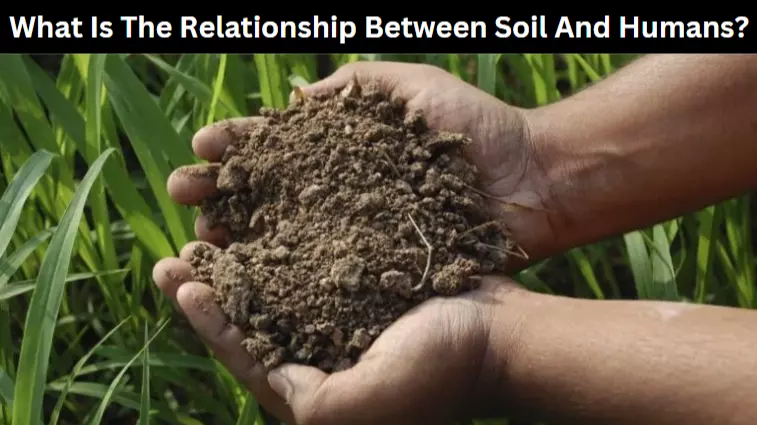Soil is a wonderful natural body. It is the main support system to maintain human life, providing a fixed place for crop roots, containing water needed for plant growth, and providing life-sustaining nutrients.
Soil, the skin on the earth’s surface, is indeed rich and colorful. It not only provides a good ecological environment for plants and animals, but also provides a good living environment for human beings, and the health of this skin determines the survival and health of human beings.
Function Of Soil
Soil is the largest natural ecosystem on the earth, with the ability to self-purification, self-repair, and self-adjustment. In this system, the basic substances on which living things depend come from animals and plants, including nature itself.
Soil is also one of the most basic material sources for human survival and production activities.
Soil nutrients mainly come from inorganic nutrients such as nitrogen, phosphorus, and potassium obtained by plants from the air and various organic nutrients (humus, microbial cells, etc.) obtained by plants from nature.
There are a lot of organic matter and microorganisms (especially nitrifying bacteria) in the soil, which can fix nitrogen in the air. At the same time, a lot of water and nutrients in the soil will also disappear.
Therefore, although soil has a self-purification ability and self-repair function, it will also be degraded by environmental pollution and human activities. If we don’t protect the soil, it will cause nutrient imbalance and heavy metal enrichment, and ultimately endanger our own health.
Soil And Cancer Relationship
Soil is the cradle of plant growth. In natural ecosystems, soil can not only provide rich nutrients but also form a variety of bioactive substances by combining them with air, water, and microorganisms.
However, due to the low content of nutrients in the soil and the influence of physical, chemical, and other environmental factors, the quality of soil is poor, thus changing various physical and chemical properties of soil.
The results show that low soil organic matter will cause changes in bacterial community structure and biodiversity, while the higher soil organic matter content will be the opposite; In addition, the nutrient imbalance caused by long-term use of chemical fertilizers or pesticides will also reduce the ability of plants to resist pests and diseases and make plants sick.
In recent years, the problem of soil pollution caused by industrial development and improper use of pesticides and fertilizers has become increasingly serious. At the same time, the unreasonable economic layout in the development process has caused serious environmental pollution in some areas.
Excessive demand for soil by human beings leads to serious pollution and degradation, and the quality of soil is declining.
And in order to reduce the development and utilization of soil and reduce the harm to the environment, what should we do?
We find the root of the problem, to reduce the damage to the soil, that is, to reduce the use of the soil. We can reduce the use of soil when planting plants, and we can reduce the use of fertilizers and pesticides on the soil in the near future.
There are many ways to grow plants. Then we don’t necessarily use soil for planting. Although the effect of soil planting may be better.
We can carry out hydroponic cultivation and even use hydroponics machine. Whether it is large-scale cultivation or small-scale cultivation, it is actually very simple and convenient.
Using nutrient solutions can have the same nutrition as soil and chemical fertilizer, and provide a good growth environment for plants. What soil can bring to plants, can also give plants the same or even better substances.
Soil Degradation And Ecosystem Destruction
According to the latest scientific research, the relationship between soil degradation and ecosystem destruction is very close, and it is one of the main causes of global ecosystem destruction and degradation.
For example, the degradation of soil quality leads to the reduction of plant species, the decline of soil productivity, and soil erosion, which in turn affects food production and ecological security.
In addition, with the acceleration of urbanization, industrialization, and rapid population growth, agricultural land is becoming increasingly tense; In addition, the rapid growth of chemical fertilizers and pesticides and the soil pollution caused by pesticide residues exceeding the standard lead to serious soil degradation.
Soil degradation poses a great threat to the safe production of agricultural products and human health; Soil degradation will also cause a series of problems such as abnormal climate change and deterioration of the ecological environment.
With the intensification of the global warming effect and the increase of extreme weather events, the threat of global soil degradation to food security will be further increased.
In this case, we should avoid the continuous degradation of soil and not occupy land and soil in a large area, but replace soil planting with vertical hydroponics systems planting.
Summary
Soil has many effects on human health. For example, pollutants in the soil will reduce human resistance and even lead to acute poisoning. At the same time, the soil also has a certain dose of toxic effects on people.
With the continuous development of the social economy and the progress of science and technology, we must realize the mutual influence and restriction between environmental pollution and health.
Yes, we have unintentionally damaged the soil, and we also have a solution, that is, reducing the use of the soil. We can use the hydroponics machine to minimize some unnecessary harm, so as to follow up with modern agriculture and make life better.
